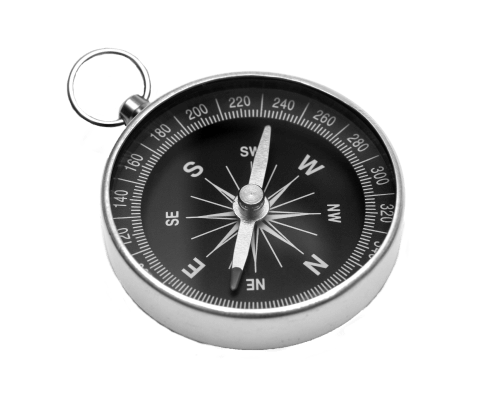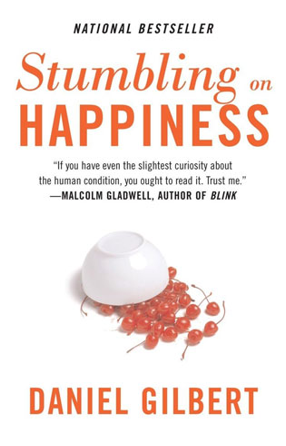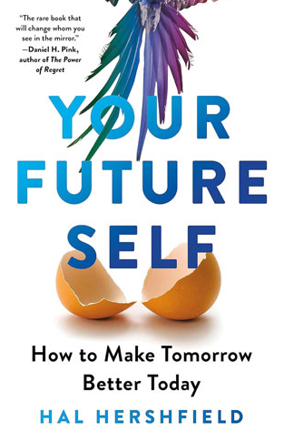Why are we so hopeless at forecasting our futures and how could you achieve better results?
April 22, 2025

This is the second of our four-part special on exploring your motivations for exiting your business – and designing your future work life, if that’s in your plans.
In the first article of this series, we listed the key factors that might push financial advice firm owners to consider selling up – and warned of the risks of rushing this process.
Today, we’ll explore why many of us struggle to forecast what will make us happy in future years and suggest two proven ways to get better at doing this.
Personal life planning is easier if we’re clear about what we value upfront. So, let’s start by looking at a powerful new way to think about your values.
Think about what you value most in life
If you type “How to work out your values” into Google, you’ll find nearly 3,000,000,000 results!
We’re not sure how many of those pages offer helpful guidance, but as you’ve probably discovered, identifying and describing your core values isn’t always easy.
Fear not, help is at hand.
We love Professor Steve Peters’ take on this challenge in A Path through the Jungle.
Peters is the author of Chimp Paradox. He’s also a psychiatrist and the former mind coach to the British Olympic cycling team that won eight gold medals at the 2012 Olympics in London.
He says we should clearly distinguish between:
- What we value – The things we find important or desirable
- Our values – Core beliefs and principles that guide our actions and decisions.
Your values
You probably only have a short list of values (that act as your moral compass), such as these examples from Peters’ book:
- Respect for others
- Justice and fair treatment
- Loyalty
- Compassion and kindness
- Integrity
- Respect for the uniqueness of each person
- Equality without prejudice
- Promotion of peace and goodwill.
Your values help you to know when you’re doing the right thing (or not). So, they often provide peace of mind and inner strength in challenging situations.
Of course, your values may be very different to those listed above. In his podcast, Diary of a CEO, Peters emphasises that not everyone adheres to this list – we must all define our own values. These are based on personal judgements, which draw on our group and individual beliefs.
We generally only get a real sense of someone else’s values from their actions.
What you value
Your moral values are quite different from the things you value, and Peters urges us to avoid muddling up the two.
Your list of “what you value” could be significantly longer than your list of core values, and might include:
- Being accepted by others as a friend
- Having enough time to spend with family and friends – and our partner if we have one
- Being a supportive friend to all of those people
- Our relationships (and the banter) at work
- Giving our time, skills, or money, to help others
- Being entertained – with music, drama, books or sports
- Enjoying hobbies, interests, and our work
- Entertaining others!
- Achieving a state of calm and contentedness
- Having a quiet and private space to find that calm!
- Having long breaks from work
- Creating new (physical, intellectual or artistic) things
- Good health – our own and that of those we love
- Getting a lift from exercise or moments of awe in the natural world
- Our special possessions and keepsakes of special times
- Making a lovely home
- Our skills and our knowledge.
And much, much more.
This list might include physical objects, works of art, valuable ideas, people, practices, habits, and states of health and mental wellbeing.
While it may be a long list, Peters says these are the things you believe will make you feel secure and happy, so it helps to know what they are, and give them some priority in your life now.
The challenge is to know what you might value in the future.
What will you want to have, become, and do (or not do) for yourself and your loved ones 5 or 20 years from now? These are the things that should inform your personal financial plan.
Yet, research shows we’re particularly bad at forecasting what will make us happy in the future.
So, let’s explore this thinking challenge now and outline some possible solutions.
Our top 2 book recommendations for guidance on forecasting your future work life
Like many questions of psychology, forecasting the future is a big and complex area. So, we can only skim the surface in this article and recommend these books for further reading on this challenge of planning a happier future life.
Our first recommendation is Stumbling on Happiness by Daniel Gilbert, a professor of psychology at Harvard University and a leading researcher on effective forecasting.
The second is Your Future Self by Hal Hirshfield, a marketing and behavioural decision-making professor at the University of California in Los Angeles (UCLA) who has been described by his fellow academics as “one of today’s leading behavioural scientists”.
The human mind has unique powers of imagination
Both books suggest that while our brains can let us down, it’s worth remembering their immense power.
According to Gilbert, humans are unique in their ability to think ahead in a more deliberate way than other animals. We:
- Can play thought experiments
- Imagine futures that are different from today
- Don’t have to learn every life lesson through experience
- Don’t haveto bang our thumb with a hammer to know that’s a bad idea.
Yet, our views of the future are often imperfect
The problem is that our minds don’t pay attention to everything happening in front of us at any given moment.
We don’t have an infinite memory capacity, so when we go on our mental time travels to the past – or imagine the future – our views are often hazy. Places and people’s faces are not well-defined in our mind’s eye.
So, we fill in the details with images and ideas that fit our story – and those details are often not a good reflection of what was (or will be) true.
What’s more, your view of the future may also depend on your mood. For example, low moods often cause us to remember and predict more negative events.
As a result, most of us are poor at forecasting how we’ll feel about change in the future.
We might think we know the circumstances and events that will delight or upset us. However, our predictions are often wildly wrong, and there are three common reasons for this.
- We’re generally quite adaptable and resilient. So, both positive and negative experiences have less of a lasting impact than we’d expect.
- We’re affected by something psychologists call “the end of history illusion”.
- Our imaginations are influenced by our current feelings, which draw on our current circumstances and beliefs.
Let’s take a closer look at these last two reasons.
The end of history illusion – you may underestimate your potential for change in the future
The end of history illusion is a fascinating paradox.
It describes our tendency to recognise significant personal growth and change over the past, say, 10 years, while not expecting that we will change much in the future.
Studies show that those in their 30s and 40s are more susceptible to this illusion than those in their 50s and 60s. Although most of us – from young adults to grandparents – are affected by the end of history illusion to some extent.
We seem to regard the present moment (whenever it is and whatever may be happening) as a watershed moment when we’ve finally become the person we will be for the rest of our lives.
This might sound silly, but it’s how many people tend to think.
Why?
We can’t be sure, but some psychologists believe we evolved this outlook as a form of self-protection.
Acknowledging the possibility that we’ll change significantly in the future may feel like a threat to our positive self-image and sense of stability.
So, it’s natural (albeit annoying when we see it in others!) that we feel confident and complete as we are.
And this means that alongside teenagers, we all need an occasional reminder that we will continue changing and growing in the future.
Basing future plans on your current feelings and beliefs could lead to forecasting errors
We all know how this works.
If you’re hungry when you go food shopping, you might buy far too many unhealthy snacks and treats.
Likewise, if you’re overworked now, you might dream of a life without work.
However, while this might suit some people, stepping back from work won’t make everyone happy. If it did, we wouldn’t regularly see billionaires, such as Richard Branson and Warren Buffett, working into their 70s, 80s and 90s.
What’s more, your financial plans might go wrong if you base your future income needs on what you earn today.
If you’re a higher earner, this approach could make escaping from work look horrendously expensive and potentially unachievable.
In fact, this common financial planning mistake puts many young people off pension saving altogether.
So, you must take care when forecasting your future and try not to assume that what you’ll want in the future can be predicted by what you want today. You may not have the energy, health or inclination to do what you dream of doing now when you’re 20 or 40 years older!
A great plan does not require you to work long days for decades before taking a big break. A “plan for tomorrow and live for today” approach makes much more sense to us.
In the future, it’s unlikely that your happiness will depend on the success or otherwise of a plan you made 20 years ago. We’re generally more resilient and kinder to ourselves than that, especially when the going gets tough – and thank goodness we are.
It’s important to remember that any forecast errors you make (based on what you want today) could lead you to overpay – in many ways – for your future.
How to overcome these forecasting challenges
Some psychologists compare the struggle to understand the needs and wants of our future selves, as being like talking to a stranger whose inner thoughts we cannot know.
It might seem like an impossible challenge, but there are two proven strategies that might help you plan your future work-life.
Future planning tip 1: Exchange letters with your future self
Hershield suggests that writing a letter to your future self could help you reflect on your long-term goals and values.
For example, you might ask yourself:
- What are you most proud of?
- What do you wish you had done differently?
- What are your biggest regrets?
- What brings you the most joy?
These questions could help you to reflect on the perspectives and needs of your future-self-stranger, which might allow you to make more thoughtful decisions in the present.
This exercise is also a great stressbuster because it can give you a broader view of your current challenges.
The aim is to develop a conversation with this stranger (your future self).
Sure, it sounds like an odd idea, but it’s been shown to work for many people.
Why not give it a try?
You could also ask this other person what activities they plan to start, do more of, do less of, or stop – now that they’ve sold their business.
Your exchange of letters may reveal their desire to continue working, if only part-time, for many years. Or maybe it won’t.
You’ll only find out if you have that conversation – with your future self.
Future planning tip 2: Get some neighbourly advice
In his book, Stumbling on Happiness, Daniel Gilbert suggests talking with others who’ve been through the experience you’re heading into. And in particular, those in the thick of the change you’re striving towards.
This is because individuals who dealt with an event decades ago will remember less about those times, and any negative memories will have faded faster than the positive ones. So, they may see that distant past through hazy and rose-tinted spectacles.
Now, if you’re thinking it sounds obvious to ask for experienced advice, we’d agree.
Whether you’re considering having children, starting a new career, leaving your job (or your partner), or heading into retirement, you can learn from those who’ve “been there, done that”.
Or so you might think.
However, according to Gilbert’s research, very few of us take this seemingly obvious action. Instead, we get stuck on the assumption that we’ll want the same things in the future as we do today.
What’s more, we assume that our reactions to future events will be unique to us personally. So, we see little value in hearing about the experiences of others.
Of course, we are unique in multiple ways – but most people are similar in many ways, too.
For example, most of us share:
- A desire for freedom – in our speech and our actions.
- A desire for meaningful personal relationships.
- A desire to belong and contribute to a community that’s larger than us.
- A desire for purpose and meaning in our work.
- A desire to create and innovate through art and problem-solving.
- A desire for joy and happiness.
- A recognition that other emotions like sadness and fear are valuable, too.
- Some self-awareness, which allows us to reflect and learn from our thoughts and feelings.
- An ability to grasp abstract concepts – to imagine, reason, and plan – albeit imperfectly at times.
- Some core values about the “right” and “wrong” ways to behave.
Our challenge, as Gilbert points out, is that these similarities fascinate us less than our differences.
We’re alert to people’s differences because they help us distinguish between friend and foe, Jack and Jill.
So, you might need to give yourself a nudge to take some neighbourly advice.
If you’d like evidence that this works, check out the research in The Surprising Power of Neighbourly Advice by Daniel Gilbert.
Bottom lines and next steps
The market for selling advice firms is always shifting and has changed significantly in the last couple of years – largely because of regulatory changes and reviews.
At Melo, we live in the thick of this challenging market with our business owner clients every day.
We don’t wear the hazy and rose-tinted spectacles of those who exited a few years back when the market was easier. So, if you’d like to find out more about how we can help you plan for your work life after exiting your business, please get in touch.
Or keep reading…
The next article in this four-part special will outline a powerful way to consider your personal needs from work – if you intend to continue working after selling your business.
Get in touch
If you’d like some neighbourly advice from peeps who’ve been there and done it, and regularly help others do the same, we’d love to hear from you.
Drop us a line at hello@melo.co.uk or call us for a chat on 0113 4656 111.

We're your
navigators!
Say 'elo
We’ve got our thinking caps on and we’re ready to mingle.




